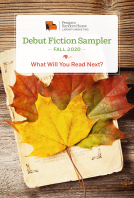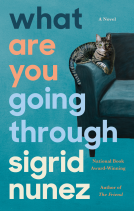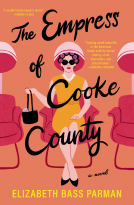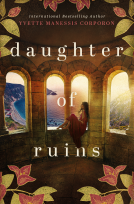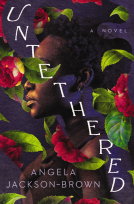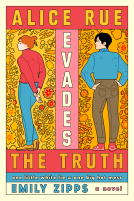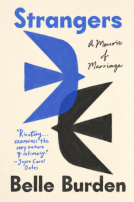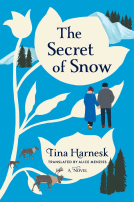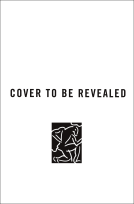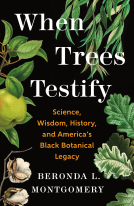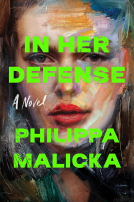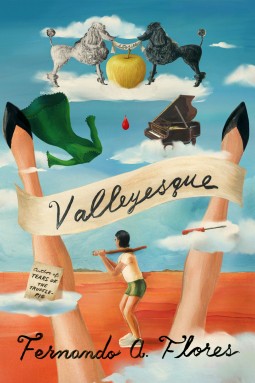
Valleyesque
Stories
by Fernando A. Flores
This title was previously available on NetGalley and is now archived.
Send NetGalley books directly to your Kindle or Kindle app
1
To read on a Kindle or Kindle app, please add kindle@netgalley.com as an approved email address to receive files in your Amazon account. Click here for step-by-step instructions.
2
Also find your Kindle email address within your Amazon account, and enter it here.
Pub Date May 03 2022 | Archive Date Oct 20 2022
Farrar, Straus and Giroux | MCD x FSG Originals
Description
"In this exuberantly strange story collection, Flores asks: Whose reality? What rules?" —Jean Chen Ho, The New York Times Book Review
"These are marvelously unpredictable stories, anchored by Fernando A. Flores’s deadpan prose and his surefooted navigation of those overlapping territories, the real and the fantastic, where so much of the best contemporary fiction now lives." —Kelly Link, author of Get in Trouble
Psychedelic, dazzling stories set in the cracks of the Texas-Mexico borderland, from an iconoclastic storyteller and the author of Tears of the Trufflepig.
No one captures the border—its history and imagination, its danger, contradiction, and redemption—like Fernando A. Flores, whose stories reimagine and reinterpret the region’s existence with peerless style. In his immersive, uncanny borderland, things are never what they seem: a world where the sun is both rising and setting, and where conniving possums efficiently take over an entire town and rewrite its history.
The stories in Valleyesque dance between the fantastical and the hyperreal with dexterous, often hilarious flair. A dying Frédéric Chopin stumbles through Ciudad Juárez in the aftermath of his mother’s death, attempting to recover his beloved piano that was seized at the border, while a muralist is taken on a psychedelic journey by an airbrushed Emiliano Zapata T-shirt. A woman is engulfed by a used-clothing warehouse with a life of its own, and a grieving mother breathlessly chronicles the demise of a town decimated by violence. In two separate stories, queso dip and musical rhythms are bottled up and sold for mass consumption. And in the final tale, Flores pieces together the adventures of a young Lee Harvey Oswald as he starts a music career in Texas.
Swinging between satire and surrealism, grief and joy, Valleyesque is a boundary- and border-pushing collection from a one-of-a-kind stylist and voice. With the visceral imagination that made his debut novel, Tears of the Trufflepig, a cult classic, Flores brings his vision of the border to life—and beyond.
Available Editions
| EDITION | Other Format |
| ISBN | 9780374604134 |
| PRICE | $16.00 (USD) |
| PAGES | 208 |
Average rating from 12 members
Featured Reviews
"Valleyesque" does a great job at both referencing various works of art and comment on 21st century issues, whilst not exploring them fully. A solid piece of fiction with Flores' prose being one of its best elements.
Valleyesque is a collection of short stories that will take you to an unforgettable journey. These stories takes place in the Texas Mexican border and will give you lessons about the values of life.
My favorite stories including old Frederic Chopin who finds his old piano and is grieving at the death of his mother. Being a piano teacher and the fact that Chopin is one of my favorite composers, this story actually fascinated me. The other story that fascinated me was Lee Harvey Oswald--the person who assasinated John F Kennedy in 1963. and in the story, young Lee Harvey Oswald embarks on his musical career. There were some heartbreaking ones as well as some funny parts that will make you laugh out loud.
Overall, if you looking for a good set of short stories, I recommend this book for you all--truly the author has done an amazing job of drawing the reader into the story and making the reader feel like they are part of the story. Worth five stars!
Many thanks to Netgalley and the publisher for the ARC. The review is based on my honest opinion only.
 Reviewer 844210
Reviewer 844210
RATING: 4.5
Thank you to NetGalley, Farrar, Straus & Giroux, and author Fernando A. Flores for an eARC in exchange for an honest review.
This anthology is one of the greatest examples of organizing a living and breathing world can be. "Valleyesque" is a glimpse into the reality of the Texas-Mexican Border society, discovering its people and culture, way way way beyond the known Mexican and Latine stereotypes we're used to seeing in media. It goes even further to being so authentic and specific, it actually reached some sort of universality - it's Mexican, but it could be so many unique cultures.
"Valleyesque" is, in its own way, a great word to describe this collection's way of presenting the world to us. Fernando has managed to find a very absurd and weird language - in a good way -, therefore making simple very powerful in their way of communicating. Close to Kafka, but also Zafonesque. I chose to start talking about this topic of the anthology, because I do think it is one of its strongest points, one of its main attractive points too, due to the fact this just won't be another ethnic story you'll be reading. It will feel like a magical world, a truthful yet misterious dimension of reality, where sadly a lot of awful things happen but it still manages to find itself alive. This language borders magical realism and absurdity, which sometimes disconnected me from the plot and made me feel confused, but not enough to make me give up on the book. In fact, Fernando is VERY consistent with the book's themes and developments, making "Valleyesque" one of the best anthologies I've ever come across.
This anthology feels like a living being, too. It not only showcases vivacity in its situations, but it's also somewhat timeless. I started to read it before the Ukrainian conflict started, and somethings took a whole another meaning after this new situation came to be in my own wordly reality. And what is very important to note here is, Fernando is shouting at us what generations and generations of Mexican immigrants have been trying to tell us about their living situation and their culture and feelings, and about the hipocracy they experience, much like any other ethnic "minority" anywhere else - including my country. I was able to find multiple passages that relate to the current indigenous situation in my country (Brazil), and was also able to identify with many other aspects as a Latina woman (myself) facing white culture.
The metalinguistic aspects of it too are important, questioning the Literary Industry and the Industry's way of putting cultural and individual works out there, of how it values authors and their stories. Fernando never misses an opportunity to use it as a metaphor for other things too, but it almost diverges from fiction when it stops to reflect on the book itself as a book, reminding us that "Valleyesque" is a portrait, thus a real world, not a fantasy (perception we get closer to due to the language when in fact, the absurdity just makes the cruelty of the real world more palatable).
If you're a fan of Carmen Maria Machado's "In The Dreamhouse", Franz Kafka's "The Trial", Cho Nam-Joo's "Kim Jiyoung, Born 1982" and Fredrik Backman's "A Man Called Ove", you should give this one definitely a try.
I hope this one gets awards and hype, because it deserves it so much!
 kATHLEEN G, Reviewer
kATHLEEN G, Reviewer
An unusual collection of short stories that will challenge the reader. Flores explores borders both real and imagined in these tales which veer from realistic to surreal. There's magical realism, there's a conversation between Flores and the reader, there's some odd stuff. These are best read one at a time over a period of days (my favored way of approaching most collections btw) because they demand more attention than you might expect. Thanks to Netgalley for the ARC. For fans of literary and experimental fiction,
I enjoyed this way more than I thought I actually would. I think the prose in each of these stories is phenomenal and I can feel the love for the stories the author has when reading them. This book took me a bit out of my comfort zone in terms of what I normally read but t was amazing. I really love particularly the 29th of April and You Got It, Take It Away. Those stories really stuck with me and I'm still really thinking about them. It was a surprising great read for me. I think it handled some heavier themes really well while also keeping you consistently in the moment.
Readers who liked this book also liked:
Yvette Manessis Corporon
General Fiction (Adult), Historical Fiction, Women's Fiction
Marie Bostwick
Historical Fiction, Literary Fiction, Women's Fiction

